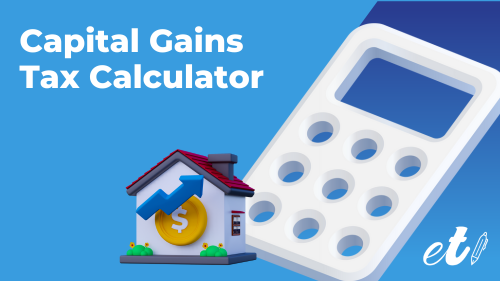Entre Trámites » Taxes in Spain » Tax Guide Spain UK for Expats
Tax Advice for British Expats in Spain
Tax Guide for UK Expats in Spain
Empower your financial journey with our tax consultation service. Receive expert insights and read our informative guide to ensure your financial well-being in Spain.

Tax guide spain UK
With Spain emerging as a top destination for global relocations, expats, especially those with substantial assets, often find it challenging to stay updated on the evolving tax regulations set by the Spanish government. For UK nationals aspiring to relocate, whether for work, family, or retirement, taxation emerges as a primary concern.
Differences in tax rates, calculation methods, and new tax categories make it essential for British expats in Spain to seek expert guidance. Keep reading our guide to know the main Spanish taxes and deductions that may apply to you!

In Spain, the tax year aligns with the calendar year, going from January 1st to December 31st. Spanish tax residents must submit their annual tax declarations, represented by the Modelo 100, from April 6th to June 30th of the subsequent year. In contrast, the UK tax year extends from April 6th to April 5th of the following year, with the self-assessment tax return typically due by January 31st after the conclusion of the tax year.
Am I a tax resident in spain?
Tax residency refers to the nation where you predominantly reside, submit tax returns, and fulfill tax obligations. For British expats in Spain, this holds immense significance as it dictates the extent of their tax liability and the application of national regulations. If you meet one of these requirements, you are regarded as a fiscal resident in the country:
- If you have spent more than 183 days in Spain within a single calendar year, irrespective of formal registration.
- If your primary professional activities are conducted in Spain (as an employee or self-employed in Spain).
- If your key interests, such as your spouse or dependent children, reside in Spain.
What are the Spanish Taxes I have to pay?
The Personal Income Tax, also known as “Impuesto sobre la Renta de las Personas Físicas (IRPF)” applies to those classified as tax residents in Spain are responsible for paying income tax on their global earnings after taking into account their personal allowances.
It is also crucial to know your tax residency status in Spain, as it determines the corresponding Spanish income tax you must pay.
Spanish tax rules classify income into two primary categories:
General Income:
- Salaries (as employee or as self-employed).
- Pension income.
- Rental income.
- Royalties.
- Other gains, such as proceeds from gambling or lotteries.
Savings Income:
- Earnings from interest.
- Dividend payments.
- Annuity income.
- Income from life assurance contracts.
- Capital gains resulting from the sale or transfer of assets.
Currently, the personal income tax rates for 2023 (declared in 2024) are:
| Annual income range | % Withholding |
|---|---|
|
Up to 12,450 euros |
19% |
|
From 12,450 to 20,199 euros |
24% |
|
From 20,200 to 35,199 euros |
30% |
|
From 35,200 to 59,999 euros |
37% |
|
From 60,000 to 299,999 euros |
45% |
|
More than 300,000 euros |
47% |
Deductible Expenses and Allowances for British Expats in Spain
While Spain doesn’t have a specific “Personal Allowance” similar to the UK, there are various deductions, exemptions, and tax credits that individuals may be eligible for. To ensure an accurate calculation it is advisable to check with a Spanish tax expert before determining your total tax amount to be deducted. These are the most common ones you can apply for:
Work-Related Expenses:
Common deductible work-related expenses may include those directly related to employment, such as certain professional development costs or expenses incurred in the performance of work duties.
Dependant Family Member:
Spain offers deductions for individuals who financially support dependent family members. This could include children, spouses, or ascendants who meet the criteria of being considered dependents.
Incapacity Allowance:
Individuals with disabilities or those supporting family members with disabilities may be eligible for specific deductions in Spain. The level of disability and the associated allowances can vary. Deductions may cover medical expenses, support costs, or other related expenditures.
Specific Deductions:
There may be specific deductions available for certain types of income, such as rental income or capital gains. For example, costs related to the maintenance and repair of rental properties can be deducted from the rental income.
Tax Incentives for British Expats in Spain
Beckham Law: Under the Beckham Law, expats can opt to pay a flat tax rate of 24% on their income earned in Spain, rather than the progressive tax rates ranging from 19% to 45%.
- The benefit of the fixed tax rate applies for a maximum period of six years from the year of registration as a Spanish tax resident. After this period, the individual is subject to standard progressive income tax rates.
- To be eligible, an individual must not have been a tax resident in Spain in the five years before taking up residence in the country.
- Under the Beckham Law, only income generated within Spain is subject to taxation. This includes income from employment, business activities, and real estate located in Spain.
- Individuals benefiting from the Beckham Law are required to file an annual tax return declaring their income. This includes details of income from all sources, both within and outside Spain.
Special Tax Regime for Inbound Expatriates: As of 2023, highly qualified professionals, entrepreneurs, and remote workers using IT and telecommunications can benefit from a special tax regime. This includes a reduced tax rate and the possibility for spouses and children to also apply for the regime.
Spain UK Double Tax Treaty
The Spain UK Tax Treaty is a bilateral agreement between the United Kingdom and Spain aimed at preventing the same income from being taxed in both countries. It encompasses criteria to determine tax residency, designates the country with the primary right to tax each income category and, to prevent double taxation on the same income, the treaty incorporates mechanisms, often in the form of tax credits. We offer you some examples:
- Rental Income: If a UK expat owns property generating rental income of £15,000 in the UK and €5,000 in Spain, the treaty specifies that each country has the primary right to tax the rental income generated within its borders. Therefore, the UK taxes £15,000, and Spain taxes €5,000, avoiding double taxation.
- Capital Gains: Suppose a UK expat sells real estate in the UK with a capital gain of £20,000. The treaty outlines that the capital gains tax on the sale of immovable property is levied in the country where the property is situated (UK), ensuring clear rules for taxation on the specified gain.

Do you still have questions about the taxes you have to declare in Spain? Talk to an expert here!
Taxing Assets: Capital Gains, Wealth Tax and Modelo 720
Maximize your financial planning with a detailed look at these taxes to be paid in Spain:
Capital Gains Tax:
Capital gains are integrated with personal income tax (IRPF) and taxed progressively. The rates for 2023 are:
- 19% on gains up to €6,000.
- 21% on gains between €6,000 and €50,000.
- 23% on gains between €50,000 and €200,000.
- 27% on gains between €200,000 and €300,000.
- 28% on gains over €300,000.
The following 4 types of capital gains fall under dual taxation in both the United Kingdom and Spain, allowing taxpayers to leverage the international double taxation deduction:
- By the sale of shares, excluding those traded on the stock market or similar rights. It's relevant when the value of these shares is mainly derived (50% or more) from real estate assets in the UK.
- By the sale of UK real estate rights.
- By the sale of immovable assets, regardless of their specific nature.
- By the sale of movable assets that are part of a permanent establishment in the United Kingdom. It can be eligible for double taxation if these assets are used for economic activities.
Wealth Tax (Impuesto sobre el Patrimonio):
All incomes derived from the ownership of a property in the United Kingdom are subject to taxation in both Spain and the UK. However, individuals classified as fiscal residents have the right to invoke the international double taxation deduction, ensuring that they do not incur the same tax percentage twice on their income.
Wealth tax ranges from 0.2% to 2.5% and is applied to the net value of assets owned on December 31st each year.
Regional Variations: Some regions have different rates and thresholds. For example, Madrid and Andalucía apply a 100% wealth tax relief, effectively a 0% rate.
Modelo 720 to Declare Foreign Assets:
The Modelo 720 is an annual obligation for Spanish residents to disclose international assets falling under specific categories:
- Assets held in any bank accounts.
- Property located in a foreign country.
- Overseas securities or shares.
- Life insurance policies.
If the combined value of assets in these categories exceeds €50,000, the report must be submitted by December 31st.
While not required annually, resubmission is necessary if asset values increase by over €20,000 from the original filing. A new form must also be submitted for any sold assets or closed accounts.
Save Time And Money with Entre Trámites!
Experience a smooth and efficient journey and consulting about handling your Spanish taxes. Our streamlined process not only saves you precious time but also ensures cost-effective solutions.

Schedule a consultation with our tax expert
Complementary Services
That may be useful to you
Here's What They Say About Us
Content To Keep You Updated
FAQ
General Info
Yes, and the Spain UK double tax treaty aims to prevent double taxation and allows you to claim relief for tax paid in one country against the tax you owe in the other. However, the application of these treaties can be complex, and seeking professional advice is crucial.
Yes, Spain imposes taxes on gifts and inheritances. The tax rates and exemptions depend on the relationship between the donor/deceased and the recipient/heir. Spouses and children generally enjoy more favorable tax treatment, with varying regional regulations influencing the final tax liabilities. Check more about this subject on Inheritance Tax in Spain!
Expats with children in Spain should be aware of child allowances and deductions. The number of children and dependency status can affect personal allowances, potentially reducing the overall tax liability. Additionally, there might be specific deductions related to education and childcare expenses.
If you’ve overpaid taxes in Spain, the process involves filing an amended tax return or submitting a claim for a refund. The specific procedure can vary based on the nature of the overpayment.
Cryptocurrency gains are subject to taxation in Spain. The Spanish Tax Agency considers cryptocurrencies as taxable assets, and capital gains derived from their sale or transfer are subject to capital gains tax. It’s crucial to keep detailed records of cryptocurrency transactions for accurate tax reporting.
Payment
The price you see when you schedule your online consultation is the final one: 50€ (+plus 21% VAT included).
You can pay using a debit or credit card.
We will refund the cost of your online consultation in the first invoice if, after the first month, you contract any Entre Trámites service whose price is higher than 300€ + VAT.
Our
Team
When you book your online consultation, you will be contacted by an experienced advisor.
It is important that you specify in the description of the consultation the exact subject/procedure you wish to discuss so that our team can prepare the meeting and provide you with all the answers and resources specific to your situation.
You can choose how you want to make the online consultation: by phone or video call through Google Meet (included in your Gmail).
We also show you the available schedules of our advisors so that you can choose the one that best suits your calendar.
We want to listen to you and know what your doubts are or what you need in relation to our services. You can count on the advice of our experts to clarify all your doubts.
Write to us at [email protected] and we will contact you as soon as possible or, if you prefer, call us.




